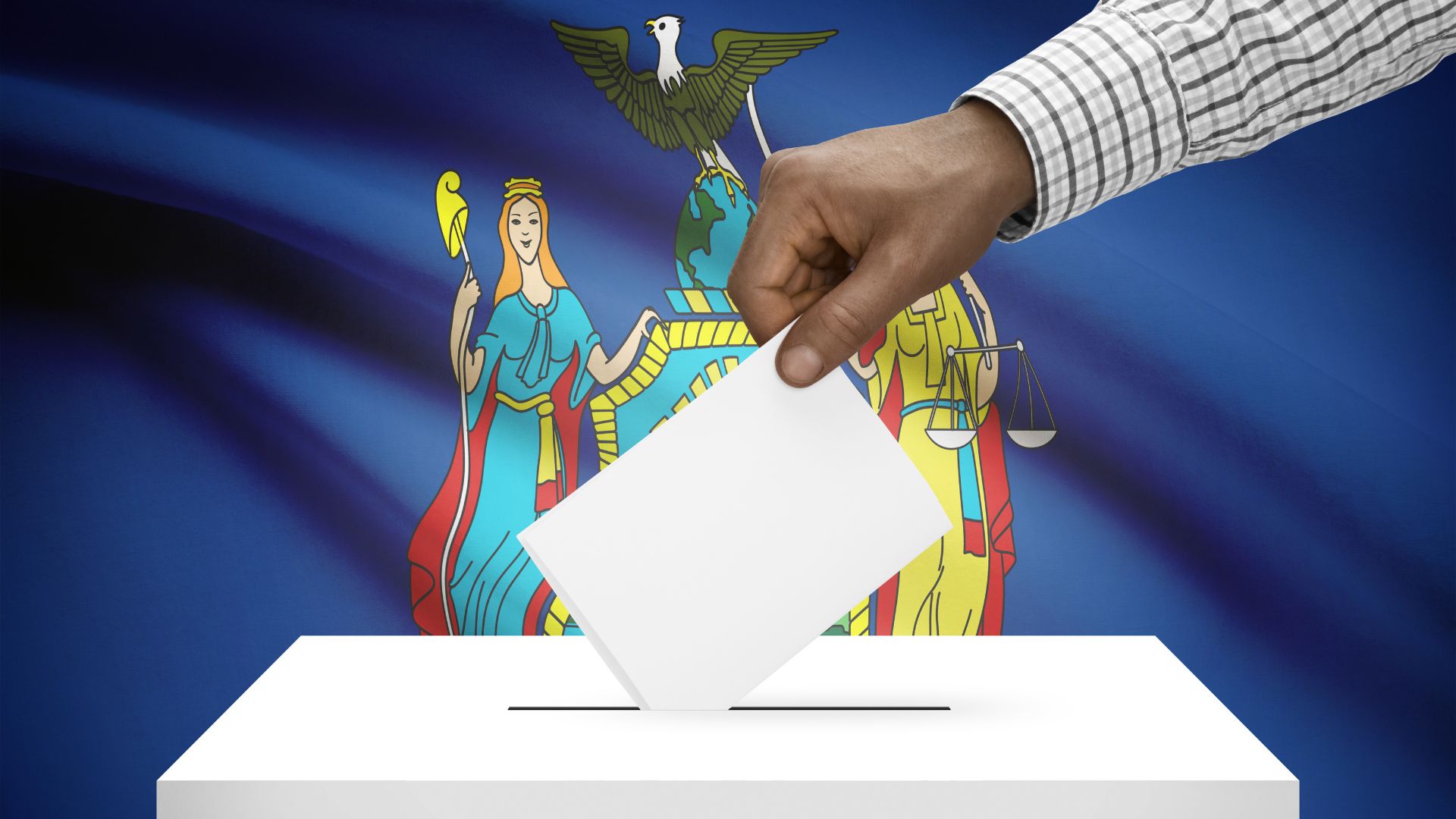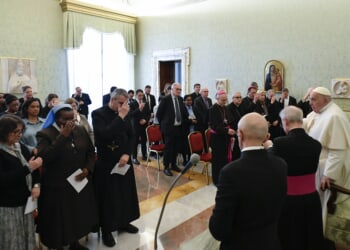
A New York State Court of Appeals ruling has officially blocked a 2022 New York City law that would have granted voting rights in municipal elections to noncitizens, including illegal aliens.
The court’s 6-1 decision marks the end of a legal battle that began shortly after the law was enacted.
JUST IN
New York’s highest court just ruled against NYC’s law allowing non-citizens to vote.
Voting is limited to citizens, the court ruled.
It was a 6-to-1 decision. pic.twitter.com/BJESjvLsvK
— Breanna Morello (@BreannaMorello) March 20, 2025
Elon Musk Called This Financial News ‘Terrifying’
The law, originally passed by the New York City Council in the final weeks of former Mayor Bill de Blasio’s administration, would have allowed more than 800,000 noncitizens to vote in local elections.
American Made Patriotic Apparel – Save 15% with Promo Code MERICA
De Blasio did not veto the measure, nor did current Mayor Eric Adams, allowing it to go into effect automatically in 2022.
Opponents of the law, including former City Council Minority Leader Joe Borelli and Assemblymember Michael Tannousis, challenged the policy in court, arguing it violated the New York State Constitution.
The legal challenge focused on the constitutional requirement that only U.S. citizens over the age of 18 are eligible to vote in elections.
“We file some lawsuits that are stretches,” Borelli said after the court’s decision.
“This one was, from the beginning, an open-shut case.”
The court’s ruling largely united judges across the ideological spectrum.
MASSIVE Election Integrity Win!
RNC Secures Court Victory to Stop Non-Citizens from Voting in New York pic.twitter.com/YeH6i9Lhs3
— GOP (@GOP) March 20, 2025
Chief Judge Rowan Wilson wrote the majority opinion, emphasizing that the word “citizen” in the state constitution is not a flexible term.
“It is plain from the language and restrictions contained in [the state constitution] that ‘citizen’ is not meant as a floor, but as a condition of voter eligibility: the franchise extends only to citizens whose right to vote is established by proper proofs,” Wilson wrote.
He also criticized the logic offered by supporters of the law, who argued that municipalities had the authority to expand voter access beyond the constitutional standard.
“Under that interpretation, municipalities are free to enact legislation that would enable anyone to vote – including … thirteen-year-old children,” Wilson noted in the ruling.
The court’s decision affirms two earlier lower court rulings, both of which sided with the plaintiffs and found the law unconstitutional.
“As the court had held from the very beginning, the law is clear that voting is a sacred right that is for United States citizens,” said Assemblymember Tannousis, a Staten Island Republican and son of naturalized immigrants.
“As the son of immigrants that came to New York for the American dream and worked hard to become naturalized citizens, I am content with today’s ruling.”
If the law had been upheld, New York City would have joined a short list of U.S. municipalities—such as San Francisco, Oakland, Washington, D.C., and several localities in Vermont and Maryland—that permit noncitizens to vote in certain local elections, according to Ballotpedia.
The ruling comes amid increased attention on the issue of noncitizen participation in U.S. elections.
In Massachusetts, Democratic State Senator Jamie Eldridge recently introduced a bill that would allow illegal immigrants not only to vote but also to run for public office.
When confronted about the language in the bill, Eldridge initially denied that it would permit candidacy, before admitting the bill contained that provision.
“You are right, I stand corrected,” Eldridge said after a reporter pointed out the text.
The court’s decision in New York now sets a legal precedent that may influence similar debates in other states.
It also underscores a growing divide between progressive policies at the local level and constitutional limitations on voting eligibility at the state level.
The law is now officially struck down, reaffirming that voting in New York remains a right reserved exclusively for U.S. citizens.
The opinions expressed by contributors and/or content partners are their own and do not necessarily reflect the views of LifeZette. Contact us for guidelines on submitting your own commentary.

![GOP Secures Major Election Integrity Win in the Empire State [WATCH]](https://www.right2024.com/wp-content/uploads/2025/03/GOP-Secures-Major-Election-Integrity-Win-in-the-Empire-State-750x375.jpg)




![Trump's Admin Guts Another ‘Rogue Government Agency with Zero Accountability’ [WATCH]](https://www.right2024.com/wp-content/uploads/2025/03/Trumps-Admin-Guts-Another-‘Rogue-Government-Agency-with-Zero-Accountability-350x250.jpg)
![‘We All Owe Him (Elon) a Huge Debt of Gratitude’ [WATCH]](https://www.right2024.com/wp-content/uploads/2025/03/‘We-All-Owe-Him-Elon-a-Huge-Debt-of-Gratitude-350x250.jpg)



![NCAA Champ Salutes President Trump After ‘BIGGEST UPSET IN COLLEGE WRESTLING HISTORY’ [WATCH]](https://www.right2024.com/wp-content/uploads/2025/03/NCAA-Champ-Salutes-President-Trump-After-‘BIGGEST-UPSET-IN-COLLEGE-350x250.jpg)





